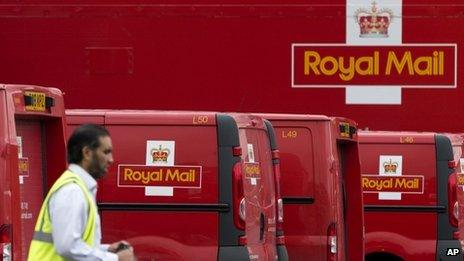Royal Mail shares fall sharply on concerns over competition
- Published
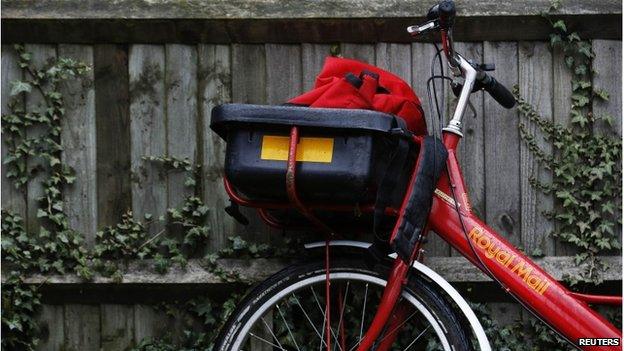
Royal Mail is currently mandated to deliver letters across the UK - including remote areas.
Shares in Royal Mail closed down 8.3% after the firm warned that rivals - including Amazon - were eating into its parcel delivery business.
Royal Mail said the rise of delivery firm Whistl could wipe £200m off sales.
It also said competition was endangering its government-mandated Universal Service, which guarantees a single price postal service that delivers to all UK addresses.
The caution came as Royal Mail reported a small fall in pre-tax profits.
They dropped to £218m for the six months to 28 September, from £233m in the same period last year.
Amazon warning
In its financial statement, Royal Mail named Whistl, formerly known as TNT, as a direct threat to future profits.
The company also said it faced increased parcel competition and that Amazon's recently-launched delivery service could singlehandedly dent its business by as much as 2%, in the short term.
In the past six months, Royal Mail's UK parcel delivery division saw revenues fall by 1%.
However the firm's international parcel delivery service, GLS, fared well, with revenue up 7%, helping the company's overall revenue to rise by just £5m to slightly above £4.52bn.
Royal Mail's letter business saw volumes drop by 3%, although this was not as steep a fall as had been expected.
The slower decline was due to election pamphleteering, particularly relating to the Scottish Referendum, for which Royal Mail delivered seven million campaign mailings and over five million poll cards.
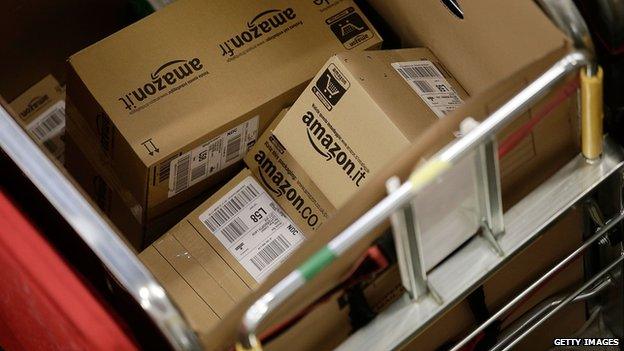
Online retailer Amazon has recently launched its own direct delivery service in the UK.
'Unfettered competition'
Royal Mail boss Moya Greene told the BBC that increased competition was threatening the company's ability to deliver letters to all parts of the UK - a service mandated by law.
She added that the "cherry-picking" of urban mail routes by competitors "undermines the economics" of its nationwide delivery service.
Royal Mail has long called for the regulator, Ofcom, to consider expanding the Universal Service mandate - which ensures mail is delivered across the UK, six days a week, at one fixed price - so that it includes rivals such as Whistl.
That may include forcing competitors to also deliver letters to rural areas at an affordable price - a service for which companies can make little or no profit.
"We believe the current regulatory framework does not fully address the problem posed by unfettered direct delivery competition," Royal Mail said, external.
"We think there is an urgent need for a new framework that will secure the sustainable provision of the Universal Service for the future."
In response, a spokesman for Ofcom said the regulator's own evidence "clearly shows that the service is not currently under threat".
''Fierce competition'' from rivals has caused the drop in profits
"We would assess any emerging threat to the service quickly, in the interests of postal users," he added.
Royal Mail has been under increased public scrutiny since it was privatised in October 2013.
In July, a group of MPs voiced concerns that the taxpayer may have lost out by about £1bn after Royal Mail shares were "undervalued".
After an initial pricing of 330p, Royal Mail shares rose above 600p in the months after its flotation, but have been steadily declining since the early summer, to 430p.

Analysis: Kamal Ahmed, BBC Business Editor
Lurking on page 8 of today's numbers is the real story in Royal Mail's results - that the business is warning of a "material risk" to the Universal Service obligation.
Some may dismiss this as special pleading from a company that does not much like competition.
But I have just spoken to the Royal Mail's chief executive, Moya Greene, and she is clear - if action isn't taken now, Royal Mail's ability to fund the six day letter delivery service across the UK will come under possibly unmanageable strain.
"The threat is now," she told me.

- Published19 November 2014
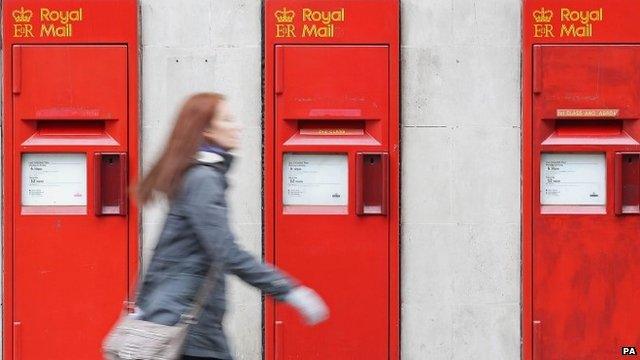
- Published10 October 2014
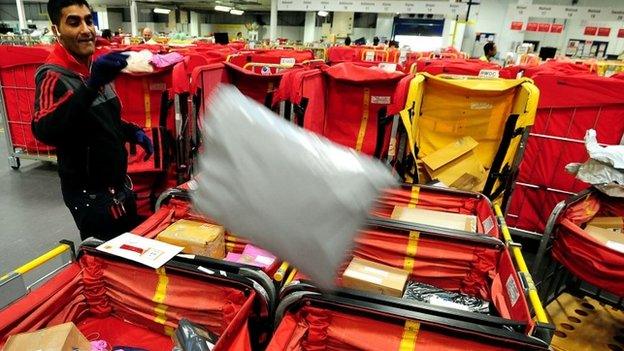
- Published10 October 2014

- Published4 November 2014

- Published9 October 2014
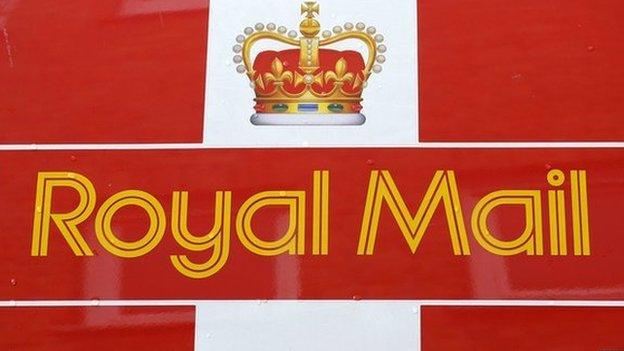
- Published6 October 2014
